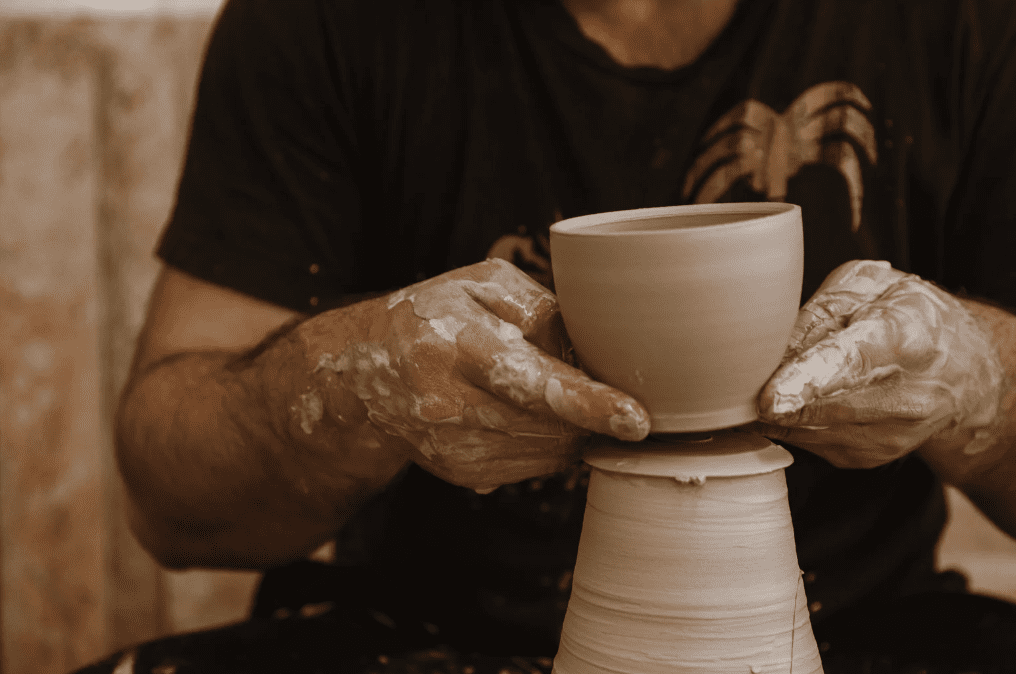If you’re struggling with anxiety, depression, or other mental health issues, your hobbies aren’t a luxury. They’re a part of your self-care toolkit—because you deserve joy that isn’t measured by productivity.
The Healing Power of Doing Something Just for You: 5 Reasons Why Making Time for Your Hobbies Is a Smart Choice
Hobbies offer more than entertainment; they provide a pathway back to joy, identity, and emotional regulation.
1. Hobbies Reduce Stress and Prevent Burnout
Chronic stress has a cumulative effect on your mental and physical health. Whether stress is related to your job, caregiving responsibilities, or something else, chronic stress can cause burnout—a state of emotional, mental, and physical exhaustion that makes it difficult to enjoy anything.
Hobbies create natural breaks from daily stressors and shift your brain into a restorative state. This is particularly true for activities that promote what psychologists call flow, a mental state where one becomes fully immersed in the present moment.
Flow-producing hobbies—such as painting, running, or playing an instrument—help reduce cortisol levels, the body’s primary stress hormone. A 2009 study published in Psychosomatic Medicine found that individuals who participated in leisure activities more frequently reported lower blood pressure, a healthier BMI, and overall better psychological and physical functioning.
2. Hobbies Create Identity Outside of Mental Health Struggles
Mental health challenges can shrink your self-perception until you see yourself only through the lens of diagnosis. Depression, anxiety, and trauma aren’t just conditions—they can become unwanted identities that overshadow everything else.
Hobbies help expand who you are. The woman learning Italian isn’t just “someone with depression”—she’s a potential traveler and a connector of cultures who is enthusiastically learning a new skill. The man who takes up photography while managing anxiety becomes an observer, an artist, a storyteller. The time you spend on your hobbies creates another facet of yourself that exists independent of your mental health struggles.
This identity expansion is fundamental to building emotional resilience. When we remember our multidimensional nature, we increase the psychological flexibility that carries us through difficult seasons.
If you’ve ever watched Parks and Recreation, you might remember Ron Swanson. A gruff libertarian with a secret love for woodworking, Ron’s hobby wasn’t just a funny character trait—it was his anchor. It kept him grounded, gave him purpose, and offered quiet joy. We all need something like that.
3. Hobbies Offer a Sense of Accomplishment
Mental health conditions can leave you feeling stuck or unmotivated. Small tasks can feel overwhelming, and long-term goals may seem out of reach. Hobbies introduce manageable, short-term challenges that lead to a tangible sense of achievement.
Whether it’s finishing a chapter of your mystery novel, assembling a model airplane, or learning a few notes of your favorite song on the piano, “small wins” activate your brain’s reward system. This releases dopamine—the neurotransmitter associated with pleasure and motivation. This positive feedback loop can improve mood and build momentum toward larger goals.
In addition, hobbies often come with visible signs of progress that can help you feel like you’re working towards positive change. A freshly baked loaf of Italian herb bread or a completed knit stocking cap becomes proof of your capability as you enjoy a delicious meal or keep yourself warm on a chilly day. A beautiful painting to hang above your sofa becomes a daily reminder that your unique perspective on the world has value.
It’s similar to what Brianna Wiest describes in her essay collection Essays That Will Change the Way You Think. She writes that healing often happens when we “create something instead of consume something.” Hobbies move us from passive scrolling to active doing—and that shift can be powerful.
4. Hobbies Connect You to Others
Social connection heals—but traditional socializing can feel overwhelming if you’re naturally more introverted. Hobbies create natural bridges to others through shared interests rather than awkward small talk.
The beauty of hobby-based communities—whether pottery classes, hiking groups, or online gaming forums—is that conversation flows naturally around the activity. For those with social anxiety or introverted tendencies, this offers connection without spotlight pressure. Over time, friendships that begin with common interests can branch out to provide a more comprehensive source of emotional support.
5. Hobbies Give Your Brain a Break From Overthinking
Overthinking is a common symptom of anxiety disorders as well as depression. If you’re prone to rumination, spending time on hobbies you enjoy can help redirect attention and provide your brain with something tangible to focus on.
Activities that involve your hands or body are especially effective when it comes to keeping negative thoughts at bay. Working in your vegetable garden, putting together a puzzle, or even building a new LEGO set engages your senses and interrupts unhelpful thought patterns. When you’re focused on a present-moment activity, your nervous system begins to calm down—promoting a state of mindfulness.
This process is supported by neuroscience. Engaging in a focused task activates the prefrontal cortex, which helps regulate emotions and decision-making. At the same time, the brain’s default mode network—associated with mind-wandering and self-critical thoughts—is dialed down.
Do You Need Additional Support for Your Healing Journey?
If you’re struggling with anxiety, depression, or simply feeling disconnected from yourself, hobbies can be a meaningful step towards feeling better—but they’re just one piece of the puzzle. You deserve comprehensive support as you work toward healing. Eagle View Behavioral Health is here to help.
Our behavioral health center in Bettendorf, Iowa provides free, confidential mental health assessments 24/7. Reach out today to learn more about how our services can help you manage your condition and make the most of each day.






